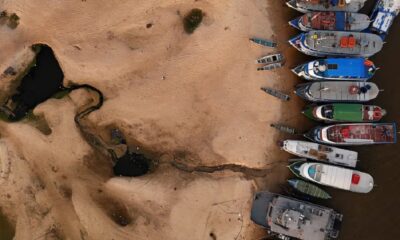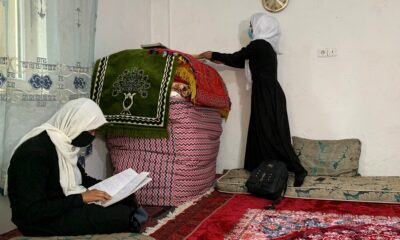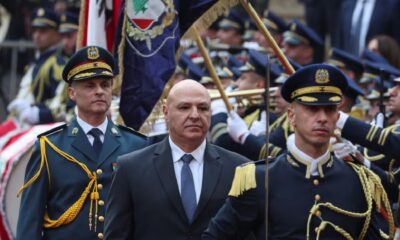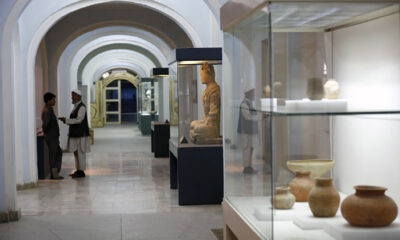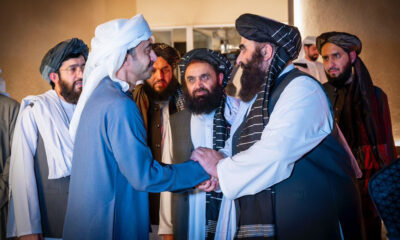Latest News
Key to war and peace lies with Pakistan: Karzai
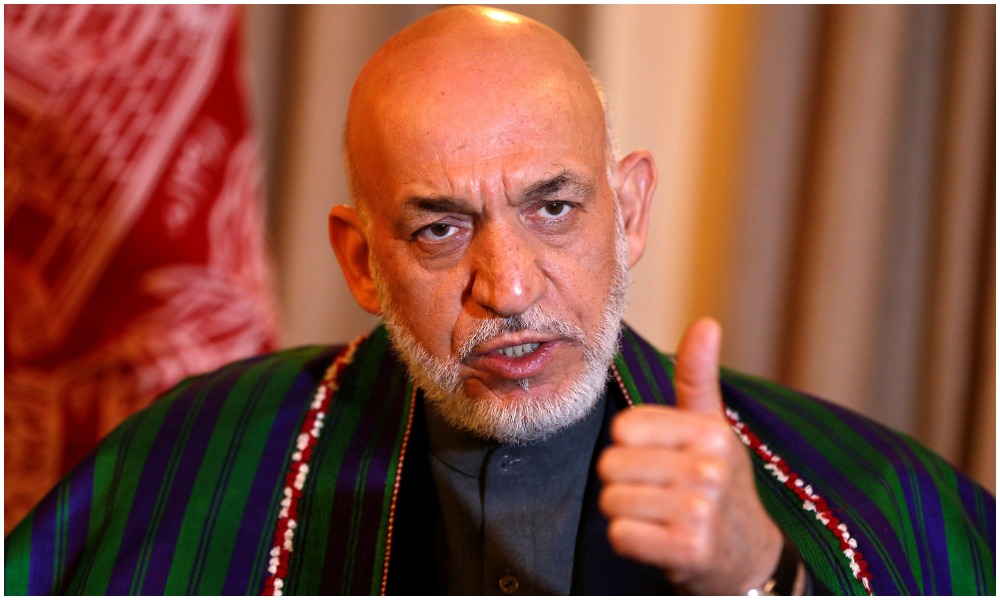
Former Afghan president Hamid Karzai said Afghans are being used against each other by external forces and that Pakistan wants to exert strategic influence in Afghanistan through the Taliban.
In an interview with Germany’s weekly news magazine Der Spiegel, Karzai said: “I realized early into my tenure as president that this war is not our conflict, and we Afghans are just being used against each other - the republic against the Taliban and the Taliban against us.
“Both the Afghan Republic and the Taliban are victims of these external forces. That is why we are suffering,” he said.
Giving background on the events of the past 20 years, Karzai said that after the September 11, 2001, terrorist attacks in the U.S., Washington took the historic opportunity to pursue its global ambitions in Afghanistan.
“Just look at our position on the map. Afghanistan is the most strategically important place in today’s global contest for supremacy. At the same time, Pakistan started using the Taliban to further its own agenda in Afghanistan.”
He noted that there are local and regional conflicts, but according to him what is of key importance is “geostrategic domination”.
Karzai said a key moment for him had been during a meeting with senior U.S. policymakers in Washington in 2013, including former president Jimmy Carter's now-deceased national security adviser, Zbigniew Brzezinski.
“When I asked whether it was true that America was deliberately promoting radical Islamist forces in Afghanistan and the region, Brzezinski said, yes, they wanted to create as many conflict zones around the USSR as possible, a so-called ‘arc of crisis’, and that the Soviet invasion was a good opportunity to carry this out.
“I replied that Islamist extremism had been gravely strengthened as a result and had grown into the danger it is today. Brzezinski replied that from a historical perspective, the rise of a few Islamists was ‘irrelevant’ compared to the failure of communism,” he said.
Explaining what this contest of world powers has to do with the Taliban, Karzai said: “When things started to go wrong in Afghanistan – around 2005, 2006, when the extremist terrorist attacks started – we talked to the U.S. about the different causes of the violence. We knew that these attacks were being organized by intelligence in Pakistan and carried out by the Taliban.
“The U.S. confirmed this independently, telling us: Yes, the violence is coming from Pakistan, and yes, the Taliban's sanctuaries are there. But instead of investigating the root cause of the violence and going after it, Washington started to fund Pakistan's military,” he said.
Karzai said the U.S. was supporting both sides of the conflict at the same time.
“It was dropping bombs on Afghan villages in order to fight the Taliban, while at the same time, funding the very country accused of organizing Taliban terror campaigns.
“Former U.S. President Donald Trump once announced that America had paid $35 billion to Pakistan over these past 19 years. This contradictory policy cost thousands of Afghan lives – troops and civilians alike. Tell me, how was Afghanistan supposed to come to peace?,” he asked.
Asked how the U.S. responded to his take on this, Karzai said there has never been a satisfactory answer.
“Either the U.S. has really miscalculated strategically, or Pakistan, which is so closely linked to China and Great Britain, is simply more important than we are for achieving Washington's global goals,” he said.
Karzai stated that Pakistan wants to exert strategic influence in Afghanistan through the Taliban adding that this traces back to fears related to the legacy of British colonial rule in the region.
He said however that Afghans want strong relations with Pakistan but that this can only exist if there is peace and stability in Afghanistan and “if the trust deficit is eliminated, and if Pakistan shows itself to be a good neighbor”.
On the disputed border issue - the Durand Line - between the two countries, Karzai said: "We want an open exchange between people on both sides, without border controls, and with freedom of movement, similar to what Europeans have achieved today between Germany and France."
He went on to state that Pakistan would like Afghanistan to break off relations with India.
“That is impossible. If we give in to this, we would give up our sovereignty and independence. If we want to send our police or our army or our boys and girls to India for training because it is good for our country, we should do so. Conversely, India should not complain if we have friendly relations with Pakistan,” he said.
Asked why Pakistan should give up its fight now, Karzai said: “The Pakistani offensive is in full swing right now. There is fighting going on. But Pakistan must know that it cannot win by force.
“They may kill us. They may send us bombs, they may send us extremists, but that does not kill our spirit. Dominating Afghanistan from the outside has never worked. It didn't work for the British, it didn't work for the Soviets, and it didn't work for the United States, even with all of its resources.
“And the Pakistanis will not succeed either. Right now, we are closing ranks in Afghanistan and organizing resistance. So my appeal to Pakistan is: Let's be reasonable. Let's start a civilized relationship between our two countries,” he said.
“We would welcome such a proposal with the utmost interest. At the same time, we have high hopes for the so-called Troika plus, a diplomatic initiative launched by Russia, which also includes China and the United States,” he said.
Karzai said however that both sides need to stop claiming to have the right to represent the Afghan people while holding the guns of a foreign power in their hands.
“My advice is this: Let the Taliban come back. Let them participate and prove themselves in public, whether in the Loya Jirga – the traditional representation of the people – in elections or in a referendum, as is customary around the world. Only then will it become clear who truly represents the people,” he said.
He also pointed out that after the Taliban’s agreement with the U.S. last year, there is no longer any religious or patriotic legitimacy for them to attack their own countrymen or to instigate conflict in Afghanistan.
“Additionally, we cannot preserve the achievements of the last 20 years without the full participation of Afghan women. I am particularly proud and happy about their return to public life, by the way, and so are the Afghan people. We cannot allow Afghan girls not to go to school. The Taliban know that,” he said.
In conclusion he said ultimately, the Taliban are also Afghans, and that he hopes they will stand up to foreign influences where necessary, such as in Pakistan.
“My appeal to Afghans, including the Taliban, is that we come together and finally take our fate into our own hands against all foreign powers,” he said.
Latest News
IEA invited to girls’ education conference in Islamabad

Pakistan's Minister for Federal Education and Professional Training Khalid Maqbool Siddiqui on Thursday said a formal invitation had already been sent to Afghanistan to participate in a conference on girls' education.
The international conference on girls' education in Muslim countries would be held from January 11 to 12 in Islamabad with aims to address challenges and opportunities of women.
Siddiqui expressed the hope that representative from the Islamic Emirate of Afghanistan (IEA) would attend the conference.
Addressing a news conference, the minister said that the conference, jointly organised by the MoFEPT and the Muslim World League (MWL), will be presided over by Prime Minister Shehbaz Sharif.
He said the ministry had already sent invitations to 57 counties which was confirmed by 48 countries and added the conference would be attended by leaders, policy makers, diplomats, religious scholars, educationists, and experts from Muslim countries.
The conference's keynote address would be delivered by Nobel Laureate and globally-acclaimed advocate for girls' education Malala Yousafzai, he added.
Latest News
IEA’s minister of culture meets with EU diplomat over preserving Afghan culture
“Protection of cultural heritage is not only the duty of Afghans, rather, it is the duty of the world to fully cooperate with Afghanistan in this field,” he said.

Khairullah Khairkhwa, Afghanistan’s minister of information and culture, this week met with Veronika Boskovic Pohar, the new EU charge d'affaires, to discuss the protection of Afghanistan’s cultural heritage.
According to the ministry, both sides discussed and exchanged opinions on the protection of cultural heritage, its value and public awareness on the issue.
At the meeting, Khairkhwa voiced appreciation for the EU’s cooperation in the field of cultural heritage protection, and emphasized the need for further development of relations.
"Protection of cultural heritage is not only the duty of Afghans, rather, it is the duty of the world to fully cooperate with Afghanistan in this field," he said.
Pohar in turn assured the minister of the EU’s continued cooperation in this respect.
Latest News
Muttaqi meets with UAE’s Deputy PM during Gulf state visit
The meeting was also attended by Ahmed Bin Ali Al Sayegh, the UAE’s Minister of State.
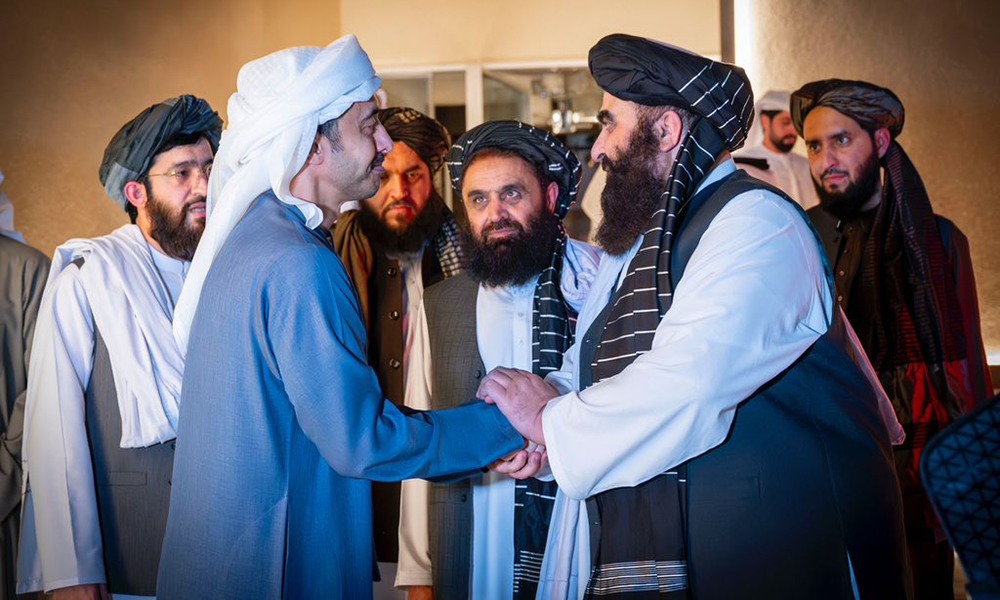
Afghanistan’s Minister of Foreign Affairs Mawlawi Amir Khan Muttaqi on Wednesday met with Sheikh Abdullah Bin Zayed Al Nahyan, Deputy Prime Minister and Minister of Foreign Affairs for the UAE, in Abu Dhabi on Wednesday for talks on various issues including the Islamic Emirate’s aspirations for stability, development and prosperity in the country.
The two diplomats also discussed progress made in Afghanistan over the past three years.
In addition, they discussed bilateral relations and ways to enhance them to achieve the mutual interests of both countries, promoting prosperity and welfare for their peoples.
According to a statement issued by the UAE’s ministry of foreign affairs, Al Nahyan and Muttaqi also exchanged views on regional and international issues of common concern.
Additionally, they reviewed ways to strengthen cooperation between the two countries in several sectors, particularly in economic and developmental fields, while supporting reconstruction and development efforts in Afghanistan.
The meeting was also attended by Ahmed Bin Ali Al Sayegh, the UAE’s Minister of State.
Also on Wednesday, Muttaqi met with India’s Foreign Secretary Vikram Misri in Dubai where they discussed the need to strengthen bilateral ties.
Misri reaffirmed India's long-standing friendship with the people of Afghanistan, and emphasized the strong people-to-people connections between the two nations.
Misri highlighted India's commitment to addressing Afghanistan's urgent developmental needs and extending humanitarian support.
The discussions also included an assessment of India's ongoing humanitarian assistance programs in Afghanistan.
-
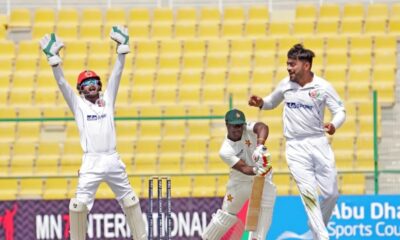
 Sport5 days ago
Sport5 days agoRashid Khan puts victory in sight for Afghanistan v Zimbabwe
-
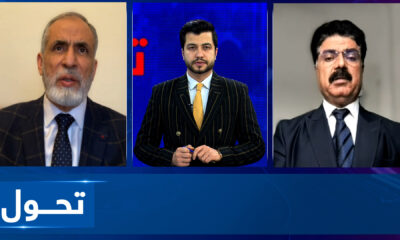
 Tahawol5 days ago
Tahawol5 days agoTahawol: Iran’s deportation of 3 million Afghan refugees
-

 Sport4 days ago
Sport4 days agoAfghanistan triumphs in Test victory against Zimbabwe
-
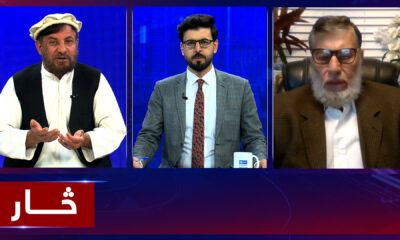
 Saar5 days ago
Saar5 days agoSaar: Increase in Durand Line clashes discussed
-
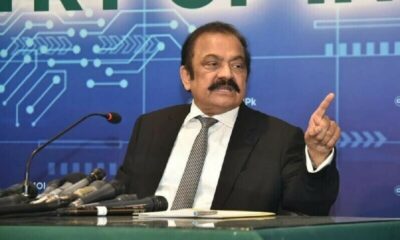
 Latest News5 days ago
Latest News5 days agoPakistan has right to attack TTP in Afghanistan: PM’s adviser
-

 Latest News4 days ago
Latest News4 days agoIran will use ‘all means’ to restore water rights from Afghanistan
-

 Latest News4 days ago
Latest News4 days agoBlinken unapologetic about ending America’s ‘longest war’ in Afghanistan
-
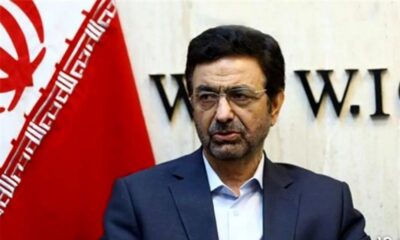
 Latest News5 days ago
Latest News5 days agoIranian MP says dam construction in Afghanistan is ‘questionable’


